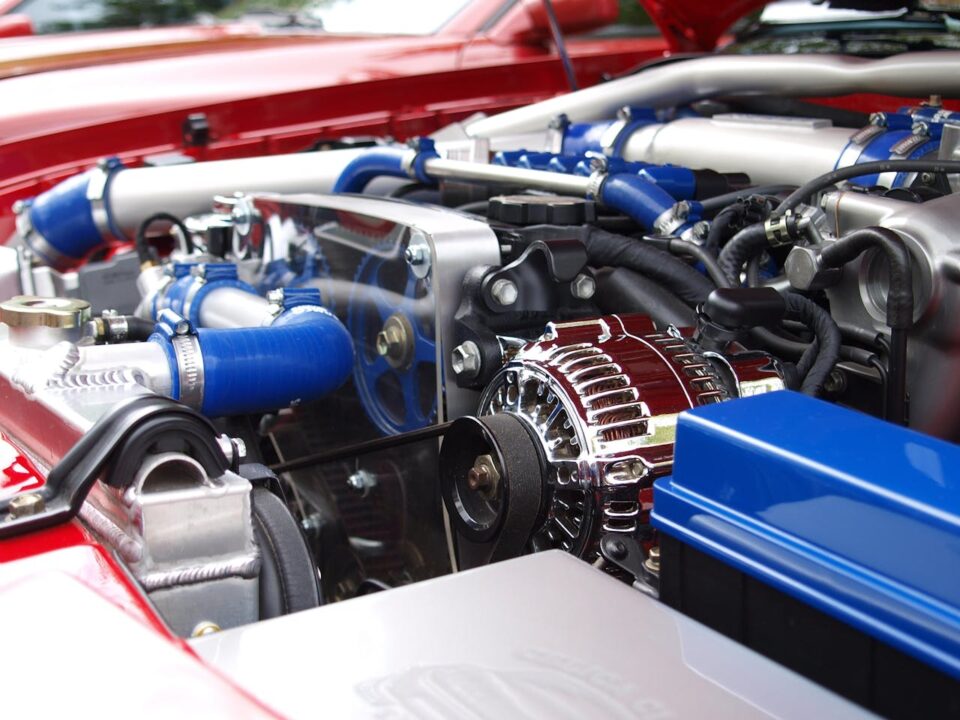When it comes to engines, diesel, and gasoline power, plants are two distinct beasts, each with its own set of characteristics and operating principles. Although they both convert fuel into mechanical energy, their designs and methods of combustion distinguish them.
Understanding how diesel and gasoline engines vary is essential for performing maintenance and troubleshooting efficiently. Let’s explore what makes a diesel engine unique and how it differs from its gasoline counterpart.
Compression Ignition
One of the most fundamental distinctions between diesel and gasoline engines is their ignition systems. Diesel engines use a compression-ignition process, whereas gasoline engines employ spark plugs to ignite the air-fuel combination. Within the combustion chamber of a diesel engine, air is compressed to a high temperature and pressure, causing the diesel fuel to ignite spontaneously upon injection.
Diesel engines can operate without spark plugs because of the compression-ignition process, which makes ignition systems simpler and more reliable. However, diesel engines impose higher compression ratios than gasoline engines, requiring more robust engine components to withstand the increased pressures and temperatures.
Fuel Injection System
Another key difference between diesel and gasoline engines is their fuel delivery systems. In gasoline engines, fuel is typically mixed with air before the fuel injector discharges fuel into the combustion chamber. Diesel engines, on the other hand, employ a direct injection system in which high-pressure fuel is pumped straight into the combustion chamber.
Due to this direct injection technology, diesel engines can achieve more accurate control over the combustion process and greater fuel atomization, which also increases power output and fuel economy. However, it requires the use of high-pressure fuel injectors and pumps, which are more susceptible to wear and require routine maintenance to guarantee optimal performance.
Fuel Composition
Diesel fuel differs from gasoline not only in terms of its ignition properties but also in its chemical composition. It has superior lubricating properties, is heavier and oilier than gasoline, and has a higher energy density. Furthermore, diesel fuel is less likely to vaporize and more stable when stored than gasoline since it contains fewer volatile compounds.
These differences in fuel composition have implications for engine design and performance. Because diesel fuel requires greater compression ratios and combustion pressures, diesel engines are usually constructed with stronger, more resilient parts. Moreover, diesel engines require specialized fuel filters and additives, such as antigel diesel fuel additives, to prevent fuel gelling and ensure reliable operation in cold weather conditions.
Power and Torque

Diesel engines are renowned for their high torque output, making them well-suited for heavy-duty applications such as towing, hauling, and off-road driving. The diesel combustion process produces a longer, more sustained power stroke than gasoline engines.
Diesel engines can generate more torque at lower RPMs because they run at lower engine speeds and higher compression ratios than gasoline engines. Because of their improved low-end grunt and pulling ability, diesel engines are the best choice for tasks requiring a lot of torque, such as hauling trailers or climbing steep hills.
Efficiency and Fuel Economy
Another advantage of diesel engines is their superior fuel efficiency compared to gasoline engines. Diesel engines can generate greater power from each unit of fuel consumed because diesel fuel has more energy per gallon than gasoline. Furthermore, compared to the spark ignition method utilized in gasoline engines, the compression-ignition process employed in diesel engines is intrinsically more thermally efficient.
For diesel-powered vehicles and equipment, this increased efficiency leads to greater fuel economy and lower operational costs. Diesel engines are especially well-suited for continuous or long-distance travel, where fuel economy is essential.
Emissions and Environmental Impact

While diesel engines offer numerous advantages in terms of power, torque, and fuel efficiency, they also have a reputation for producing higher levels of nitrogen oxides (NOx) and particulate matter (PM) emissions compared to gasoline engines. These emissions, which are the outcome of diesel engines’ combustion, can worsen the environment and cause air pollution.
Diesel particulate filters (DPF) and selective catalytic reduction (SCR) systems are two examples of pollution control technologies installed in modern diesel engines to alleviate these concerns. By capturing and neutralizing pollutants before they are discharged into the environment, these systems reduce harmful emissions and improve air quality.
Conclusion
In summary, diesel engines are distinguished by their compression-ignition process, direct fuel injection system, and heavier, oilier fuel composition. Because of their benefits in power, torque, fuel efficiency, and longevity, they are ideal for a variety of applications.
Diesel engines do, however, also present environmental and emission-related challenges, which require appropriate maintenance and emissions-controlling technology. By understanding the unique characteristics of diesel engines and how they differ from gasoline engines, you can make informed decisions about engine selection, maintenance, and operation.

